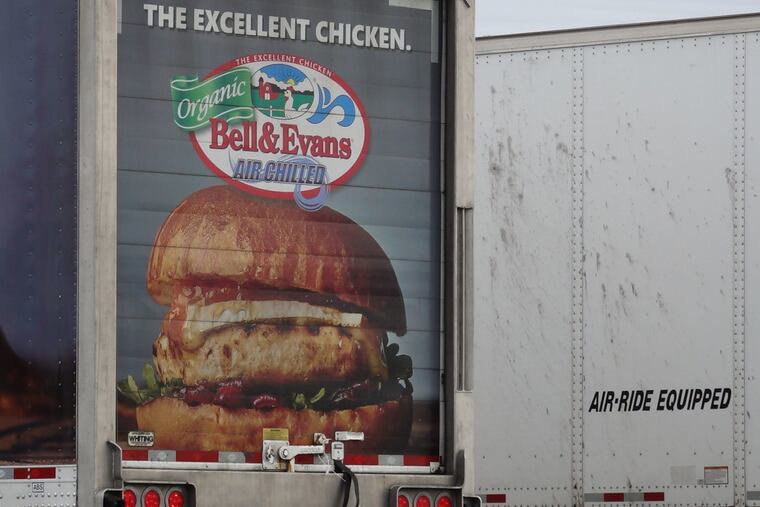Lebanon County poultry processor Bell & Evans hit with another month of bad salmonella test results
Bell & Evans organic products are sold in Whole Foods, Wegmans, and other higher-end markets.

A high-end Lebanon County poultry processor struggling with unsafe levels of salmonella did not see an improvement over the last month, the latest U.S. Department of Agriculture data show.
Bell & Evans, of Fredericksburg, Pa., was found to have dangerous salmonella bacteria levels in its chicken parts and ground chicken lines in April. Both were listed as “Category 3,″ the worst score, while its whole-chicken product was listed as Category 2, an acceptable level. (Category 1 exceeds government standards.) According to the most recent USDA reports, which end May 30, Bell & Evans scored the same as in April.
The USDA publishes processors’ salmonella scores online each month, but cannot take action against companies with dismal ratings. That’s because a landmark 2001 U.S. Court of Appeals decision classified salmonella as a naturally occurring bacteria that can’t be regulated. Experts say the use of anti-microbial chemicals during production, when the chicken gets inspected by investigators, the cleanliness of plant water, and what happens when the live birds are trucked to poultry plants for slaughter can all play a part in the testing results.
While other poultry processors in Pennsylvania also landed in Category 3, Bell & Evans is the only operation to have that designation in more than one product line, records show. The company did not immediately return requests for comment. An undated FAQ about salmonella on Bell & Evans’ website suggests that the company’s organic-certified facilities make it more difficult to fight against salmonella “because our products and surfaces are not exposed to harsh cleaning agents that may otherwise eliminate some bacteria.” The company said it aims to maintain a Category 1 status, but said it’s common for “naturally occurring bacteria levels to fluctuate.”
“Spikes in Salmonella like Bell & Evans has recently experienced can occur from a number of factors including warmer temperatures, for example,” the company stated.
Salmonella spreads through chicken waste, and sickens more than one million Americans a year, according to the U.S. Centers for Disease Control and Prevention. However, it won’t cause infection if the meat is cooked to an internal temperature of 165 degrees Fahrenheit.
“Luckily, we don’t eat our chicken raw,” said Gregory Martin, a poultry expert from the Penn State Extension who has visited Bell & Evans’ processing center and knows the longtime owners of the business, the Sechler family.
Martin said Bell & Evans is likely trying to trace the source of salmonella back to one of its many supplying farms.
“It’s not that easy,” he said.
The company has also struggled with a coronavirus outbreak among workers that has killed at least three people and sickened an unknown number of workers.
Bell & Evans, located 95 miles northwest of Philadelphia, is the largest private employer in Lebanon County and has grown rapidly in recent years. The company plans to add two manufacturing lines, each processing 140 chickens a minute, the fastest speed allowed under federal law without special waivers. Touting its new-age chicken processing techniques, the company has attracted consumers who are willing to pay more on store shelves. Locally, the brand is sold at Whole Foods and Wegmans markets.